Mathematics & Further Mathematics
Head of Department: Mr M D Robson
Exam board: Edexcel
Qualification name: Mathematics ; Further Mathematics
Qualification codes: 9MA0; 9FM0
What you will study
The content for AS and A Level Mathematics is prescribed by The Department for Education and Ofqual and is therefore identical for all exam boards. In the Lower Sixth students study AS Mathematics. Two thirds of the content is Pure Mathematics including sections on algebra, trigonometry and calculus. One third is Mechanics and Statistics including sections on kinematics, forces, Newton’s laws, probability, statistical distributions and hypothesis testing. In the Upper Sixth students complete the course, extending their study on sections covered in the first year.
How you will be assessed
AS
Paper 1: Pure Mathematics
A two-hour paper (worth 100 marks)
Paper 2: Statistics and Mechanics
A one-hour paper (worth 50 marks)
A Level Mathematics
Students are assessed with three papers that include questions on the AS course material.
Paper 1: Pure Mathematics
A two-hour paper (worth 100 marks)
Paper 2: Pure Mathematics
A two-hour paper (worth 100 marks)
Paper 3: Two sections, one each on Statistics and Mechanics
A two-hour paper (worth 100 marks)
Further Mathematics
Students must take four 90-minute papers (worth 75 marks each) Papers 1 and 2 cover the compulsory 50% Core Pure sections Papers 3 and 4 cover the optional Decision and Further Pure Mathematics, Mechanics and Statistics sections.
Why choose Mathematics or Further Mathematics?
Studying Mathematics at A Level can be very rewarding and, at the same time, very challenging. Mathematics has a full and varied use in the wider world. The value of Mathematics, and its acceptability for degree courses and careers, is almost without parallel amongst A Level subjects.
Course requirements
Grade 7 in GCSE/IGCSE Mathematics is the usual minimum standard required to begin A-level Mathematics. It must also be stressed that achieving a grade 7 at GCSE does not necessarily mean that success at A-level will follow and some students may still struggle with the jump in standard. Confidence with algebraic techniques is crucial. Very able mathematicians may wish to study Further Mathematics and they should have achieved a Grade 9 in GCSE/IGCSE Mathematics. Entry to the Further Mathematics course is in the Upper Sixth after students complete an accelerated A Level Mathematics course in the Lower Sixth (taught separately). Students therefore need to state their intention to study Further Mathematics from the start of Sixth Form.
Related subjects at Sixth Form
Mathematics may be combined with many other A Level subjects and is a popular choice for many. Traditionally, students taking an A Level in a science subject, in particular Physics, would be expected to take Mathematics. The subject can also be very useful for students studying Economics, Business Studies, Geography and Computing.
Where could this lead?
Studying Mathematics encourages an ability to think logically and students learn to communicate complex ideas effectively. Universities and employers are impressed with candidates who have achieved A Level in this subject. Success in Mathematics requires an ability to master complex and difficult problems, a personal characteristic that gives mathematicians an advantage when learning new skills. Employers know that graduates who have studied Mathematics have well developed problem-solving skills and have the ability to use their own initiative.
Further Mathematics is essential for students wishing to apply for Physics and Engineering at top universities, and students without it may be asked at interview why they have not taken the course. It is also highly desirable for those intending to read Mathematics at university. More information is available at www.mathscareers.org.uk
Further important information
A progress test is taken during the first assessment period to check for a student’s suitability to continue with the course. Practise away from the classroom is crucial to gain a high level of success. To help towards this, the department provides Mathematics tutorials every weekday (except Wednesdays) from 4pm-5pm.
Calculator Requirements
Calculators used must include the following features:
- an iterative function
- the ability to compute summary statistics and access probabilities from standard statistical distribution.
The department recommends two possible calculators:
- CASIO Classwiz fx-991EX fulfills the minimum requirement for A level Mathematics.
- Casio CG50 graphing calculator provides the additional functionality to plot and analyse graphs. This is particularly useful in examinations as well as during the learning process.
A helpful comparison chart on the CASIO website compares their scientific and graphical calculators.
Please note that all CASIO Calculators for sale in the UK are permitted in GCSE and A level examinations. Although the School recommends CASIO calculators, there may be no need to purchase a new calculator if a student has another brand of (graphics) calculator. If you are in any doubt about whether your child’s calculator is permitted or sufficient for their studies, please do not hesitate to get in touch. Instructions as to how to use the calculator will be provided during lessons.

